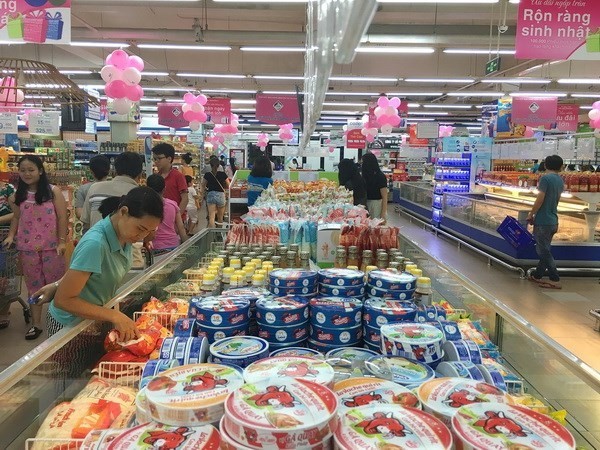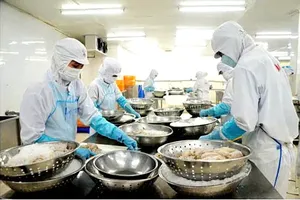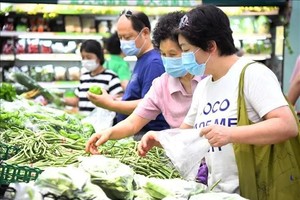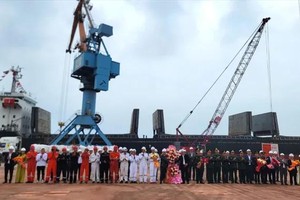
Nguyen Van Hoi, Deputy Director of the MoIT’s Domestic Market Department, made the remark at a workshop in Hanoi on May 18.
He noted that the policy of developing the domestic market to stimulate local consumption has been expanded nationwide, which has won the support of businesses and people and generated important outcomes.
Between 2011 and 2017, total retail sales of consumer goods and services grew by 10 percent each year, reaching nearly VND3.57 quadrillion ($156.54 billion ) in 2016 and VND3.23 quadrillion ($141.63 billion ) in 2017. The figure was estimated at almost VND1.4 quadrillion ($61.39 billion ) in the first four months of 2018, up 9.85 percent year on year.
Although the increase of total retail sales of goods has slowed down since 2011, it was still 1.5 – 2 times higher than the average GDP growth in the 2006 – 2016 period.
Trading infrastructure have attracted foreign investment and developed rapidly, mainly in cities. Although the expansion of traditional markets has halted recently, they still hold an important role and maintain their competitiveness compared to modern distribution channels.
There were about 8,540 markets across the country by the end of 2017, nearly 75 of which were in rural areas. Most of the markets focus on retail while only 0.97 percent of which was wholesale markets.
Meanwhile, there were 957 supermarkets in 62 out of 63 provinces and cities, excluding Ha Giang province, and 189 shopping malls in 51 of the total localities. Most of them are located in big cities and downtown areas.
Notably, the numbers of supermarkets and shopping malls in the five cities of Hanoi, Hai Phong, Da Nang, Ho Chi Minh City and Can Tho alone account for 47 percent and 50 percent of the total, respectively.
Nguyen Van Hoi said to boost trade and services nationwide, the MoIT will continue coordinating with localities and sectors to develop trading infrastructure.
It will work with relevant ministries and sectors, especially the Ministry of Planning and Investment and the Ministry of Finance, to overhaul policies to attract investment in trading infrastructure and step up training to improve the quality of manpower in the distribution and retail sector, he added.
























